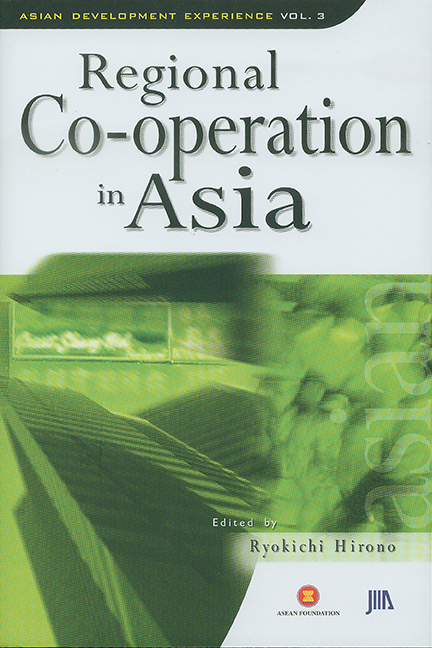Book contents
- Frontmatter
- Contents
- List of Tables
- List of Figures
- List of Contributors
- Acknowledgements
- 1 Structural Changes and Domestic Reforms in Singapore: Challenges and Implications to Regional Co-operation in ASEAN and East Asia
- 2 Asia-Japan Co-operation Toward East Asian Integration
- 3 The Impact of External Changes and Japan's Role in Industrializing Thailand
- 4 Confronting Regionalism in Asia: A View from the Philippines
- 5 Japan's Role in ASEAN-10 Under Globalization: A Japanese Perspective
- OTHER BOOKS IN THIS SERIES
1 - Structural Changes and Domestic Reforms in Singapore: Challenges and Implications to Regional Co-operation in ASEAN and East Asia
Published online by Cambridge University Press: 21 October 2015
- Frontmatter
- Contents
- List of Tables
- List of Figures
- List of Contributors
- Acknowledgements
- 1 Structural Changes and Domestic Reforms in Singapore: Challenges and Implications to Regional Co-operation in ASEAN and East Asia
- 2 Asia-Japan Co-operation Toward East Asian Integration
- 3 The Impact of External Changes and Japan's Role in Industrializing Thailand
- 4 Confronting Regionalism in Asia: A View from the Philippines
- 5 Japan's Role in ASEAN-10 Under Globalization: A Japanese Perspective
- OTHER BOOKS IN THIS SERIES
Summary
Structural Shift in Global and Regional Environment
Singapore's remarkable economic transformation in the last four decades has been, to a large extent, due to its capacity to leverage on external sources and external markets to achieve economic output far beyond its domestic production possibility curve. Such sterling policy performance was the result of far-sighted policy makers in managing and optimizing emerging favourable external environments. Specifically, the Government provided world-class infrastructure, transparent and effective institutions and sound macroeconomic policy framework to create economic value for the global marketplace. As a result, Singapore has been one of the favourite investment destinations for multinational companies in this part of the world.
Lately, there have been several major events occurring in the global and regional environments that have serious long-term implications to Singapore's economic viability and performance. Firstly, the Asian financial and economic crisis in 1997 has devastated the financial and real sectors of many Southeast Asian economies that serve as Singapore's hinterland for resources and market. The quick economic recovery in ASEAN and in Singapore in 2000 was primarily due to export expansion from low export bases and stimulus from highly devalued regional currencies. It would take many years for the ASEAN economies to fully recover from the debilitating financial sector mismanagement and non-performing loans in the financial and banking sector. As a regional hub, Singapore cannot prosper as long as the regional hinterland remains economically weak, and socially and politically instable. Singapore needs a prosperous and dynamic Southeast Asia to complement it in an environment of competitive regional clustering.
The second major external change is the accelerating market liberalization and borderless nature of the global economy. The global marketplace has become strikingly more competitive and more complex as a result of this relentless process of global production networking. The new global economic structure, widely known as the New Economy, is the product of three major elements, namely, information technology, changes in government policy and corporate restructuring. Information technology is an important force shaping the contours of the global economy and contributing to the shortening of the product cycle and changes in the comparative and competitive advantage of trading countries. The shift to information technology as the basis for industrial production is forcing a change in industrial organizations.
- Type
- Chapter
- Information
- Asian Development ExperienceRegional Co-operation in Asia, pp. 1 - 23Publisher: ISEAS–Yusof Ishak InstitutePrint publication year: 2004



